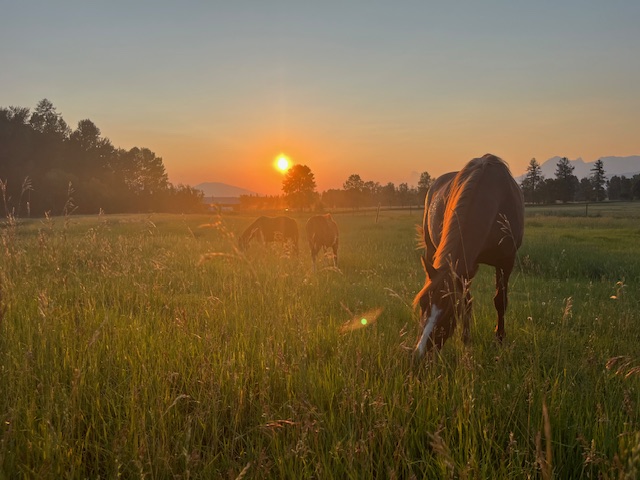Wildfires, house fires, and even heavy use of wood-burning stoves can create smoke that doesn’t just affect people—it also impacts the animals who share our homes and barns. Pets breathe the same air we do, but their smaller lungs, faster breathing rates, and different sensitivities make them especially vulnerable. Understanding how smoke affects cats, dogs, and horses, and knowing how to protect them, can make a huge difference during smoky seasons.
How Smoke Affects Pets
Just like humans, animals exposed to smoke can develop respiratory problems, eye irritation, and general discomfort. The tiny particles and chemicals in smoke can inflame airways, reduce oxygen flow, and worsen existing health conditions. Symptoms may include:
- Coughing or gagging
- Red, watery eyes
- Wheezing or noisy breathing
- Fatigue or weakness
- Nasal discharge
- Decreased appetite
Severe exposure can even lead to pneumonia or long-term lung damage.
Which Pets Are Most at Risk?
Some breeds and species are more sensitive to smoke than others.
Cats
- Cats already have delicate respiratory systems, making them prone to asthma and airway inflammation.
- Flat-faced breeds (Persians, Himalayans, Exotic Shorthairs) are at higher risk because of shorter nasal passages.
Dogs
- Brachycephalic (flat-faced) breeds like Bulldogs, Pugs, Boxers, and Shih Tzus struggle most, since their narrow airways are easily compromised.
- Puppies, senior dogs, and dogs with heart or lung disease are also more vulnerable.
Horses
- Horses have massive lungs and breathe in large volumes of air, which means they inhale more smoke particles than smaller animals.
- Performance horses (racehorses, barrel racers, eventers) are particularly affected, as smoke exposure can drastically reduce stamina and recovery time.
- Horses with “heaves” (a chronic respiratory condition) are especially sensitive.
How to Protect Your Pets During Smoky Conditions
- Keep Them Indoors
- For cats and dogs: close windows, use air conditioning or air purifiers, and limit outdoor activity.
- For horses: if possible, stable them in a barn with good ventilation and dust-free bedding.
- Limit Exercise
- Avoid walks, runs, or rides during poor air quality days. Exercise increases breathing rate, pulling more smoke particles deep into the lungs.
- Monitor Air Quality
- Check your local Air Quality Index (AQI). If it’s unsafe for you, it’s unsafe for them.
- Provide Clean Air & Water
- Use HEPA air purifiers indoors.
- Keep animals hydrated—moist airways are more resilient to irritation.
- Look for Symptoms
- If your pet shows signs of coughing, wheezing, or lethargy, contact your veterinarian. Prompt care can prevent more serious damage.
- Create a “Safe Zone”
- Designate a room or barn stall with the cleanest air possible.
- Avoid candles, smoking indoors, or using strong cleaners that can further irritate lungs.
Final Thoughts
Our pets rely on us to protect them, especially during wildfire season or smoky conditions. By knowing which breeds and species are most at risk, recognizing the signs of smoke exposure, and taking simple preventive steps, we can help keep our furry and four-legged companions safe and comfortable.

